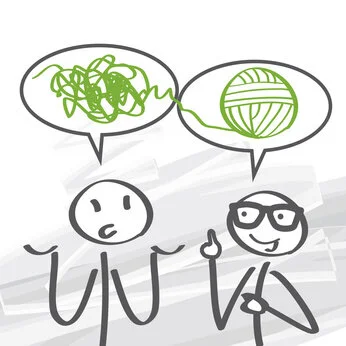A day in the Life of a Relationship Counsellor.
People often wonder what it’s like to be a Psychotherapist and what a workday is like. This is a description of an average day of mine (Tom) and although each day is different, it gives a flavour of what it’s like. The clients are made up, but the issues are what are often met in an average day;
6am. The alarm goes off and by 6.15am I’m having breakfast, then off to shower and get ready.
7.30am. Now in the office preparing for the morning clients. This includes refreshing my memory on what the previous sessions have been, planning for the morning, and printing off and handout sheets that might be needed.
8am The first clients arrive, Karl and Karla. This is their 6th session. They are in their late 40’s and since having children their relationship has deteriorated. I’m helping them see that the relationship before the children wasn’t as perfect as they see it in hindsight, that they communicated in an aggressive style, and both are poor at listening. We’ve been working on this and they are starting to develop a much more positive and helpful style. This session is helping them understand how their upbringing and the ‘attachment styles’ they developed when they were young are having a negative effect on their relationship. They leave with some tasks to do during the week which will help them understand this at a deeper level.
9am. The couple leave, quick notes are made, the drinking water replaced and then getting ready for the next clients.
9.20am A new couple, John and Jill arrive 10 minutes early. Although I might ask them to wait as I may not be ready, the female is in tears, so I ask them in. I have read their pre-session assessment form, so I know that John has recently had an affair. I settle them in, and we look at what has happened and how the therapy can help. Jill is full of hurt and pain, John shame and denial. We explore how both feel, what they both want and need, and at the end of the session, they decide to book further sessions. Although it’s been a session full of hurt and tears, they leave with some hope that this damage can be repaired and the relationship can move into its next stage, as it can never be what it was before the affair happened.
10.30. The couple leave and as there was so much information to take in, I make some bullet point notes. Then is a refreshment break and readying for the next client.
11am. Jane arrives. She is seeing me as her relationship was ended by her partner and she is struggling to cope. This is her third session and we are working through the loss and anger she feels.
11.50am The client leaves and I finish of the morning’s work and catch up with paperwork and some emails.
12.40pm to 1.30pm. A light lunch break and a 20 minutes’ walk around ‘the block.’
1.30pm to 3.30pm Admin, website management, blogs, emails and letters. This always takes longer than imagined.
3.30pm to 4pm. A cup of coffee and preparing for the next clients.
4pm. The next couple arrives. Dan and Debbie, a couple in their mid-twenties who are struggling after being together for 2 ‘good’ year since meeting each other. We are exploring how the limerence stage of a relationship ends. This is a stage where passion is high, sex plentiful and the partner is perfect, and being a chemical reaction in the brain, it fades in time, and how the deeper new relationship has to develop. We are looking at how to progress this.
5pm, the couple leave.
5.30pm. The new client arrives. This is a 65-year-old woman who wanted her partner to come into counselling, but he refused. She is exploring how to improve the relationship by seeing if she can filter into their marriage, the things she learns in the counselling.
6.30pm. The client leaves and I quickly get everything ready for the next couple.
6.45pm. This is the most difficult session of the day. Sam and Sally (both females) have a difficult relationship which involves volatile arguments and some mild violence. This is their 4th session and its hard work to manage the session so some positive progress can be made. They are still both in ‘it’s their partner’s fault’ mindset, so the progress is very slow.
7.45pm. The couple leave and I take out a few mindful moments to de-stress.
8.10pm. I have finished for the day, put away everything and lock the therapy room up. I now have a couple of hours of down-time before the end of the day.
Tomorrow is a new day!

